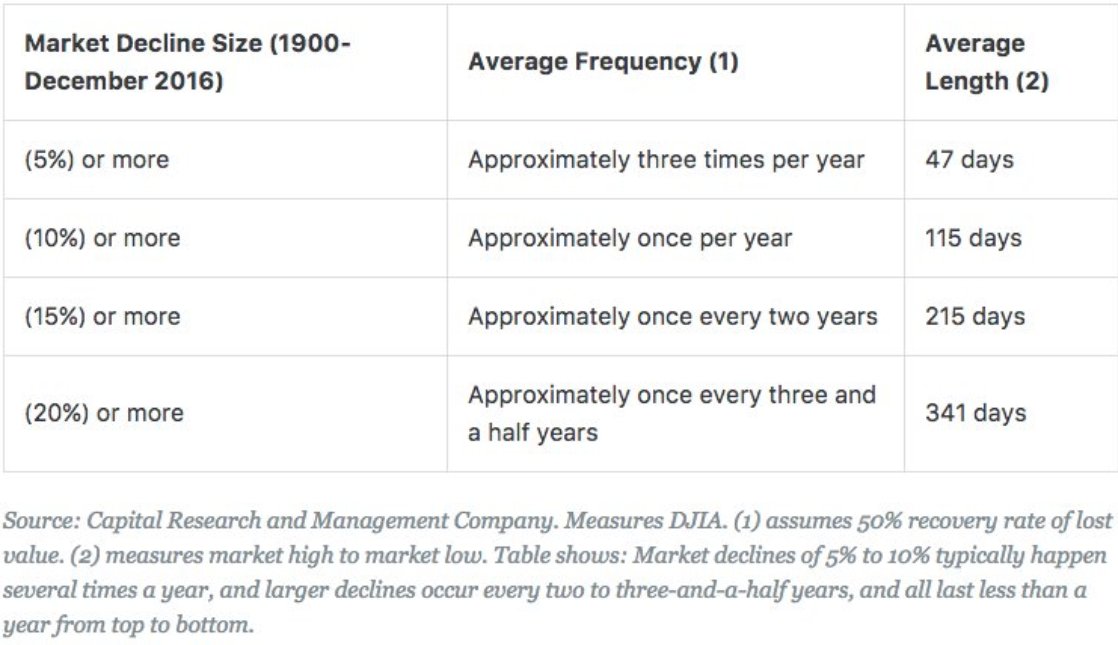Thoughts I've shared with new investors:
1. View the stock market as a savings account that you keep adding to. Regularly invest money you don't foresee needing for at least 3 years, and ideally that you'll keep invested for much longer.
1. View the stock market as a savings account that you keep adding to. Regularly invest money you don't foresee needing for at least 3 years, and ideally that you'll keep invested for much longer.
2/ A stock generally rises over the years as a company grows its net earnings (or its free cash flow). Investing in a broad stock market index such as the S&P 500 is simple and can be enough to succeed.
3/ $8,000 invested in the S&P 500 in 1980 is worth about $700,000 today. That's just $8,000 invested for 40 years (your working life, basically). Imagine if you keep adding money over the years.
4/ Some companies pay a portion of earnings to you via a dividend. Reinvesting dividends (using the dividend to buy more stock) accounts for about 60% of the stock market's long-term 10%-ish annualized return. Reinvest your dividends automatically -- it's easy & free.
5/ The right time to invest is when you have the money, and and a long time frame. Time *in* the market is the key, rather than trying to time the market, which nobody can do consistently. The earlier you start, the better. The longer you're buying growing companies, the better.
6/ Maximize the amount you save in your work 401(k) -- at least up to the amount that your employer matches you. That's an incredible benefit. Buy stock. IMO, there's no reason to consider bonds or more conservative assets until you're planning for retirement within five years.
8/ Don't panic when the stock market falls. Keep investing regularly as always. You actually want lower stock prices for as long as possible, because for the coming years you'll be a net buyer of stocks. Rising prices detract from future returns; declines add to future returns.
9/ When it comes to buying individual company stocks, you do that because (if you do well) you can earn stronger returns than the stock market index. Buy the leading companies in promising spaces; don't buy second best.
10/ Buy young, profitable, fast growing, dynamic companies. They usually look expensive, but the winners can easily grow enough to make early prices cheap. A few giant stock winners alone can change your financial life, while your losers ultimately become irrelevant to you.
11/ It isn't the number of shares you can buy, it's the dollar amount that you invest that matters. Scorn penny stocks. Buy quality. My best investments for years have largely been companies everyone knows, and many of them had just recently become listed on the stock market.
12/ Aim to not sell. A reasonable time period to hold a strong company is at least 10 years, and ideally longer if it continues to grow and still has more promise. Revenue growth is a key indicator of stock price performance. Seek enduring revenue growth from your companies.
13/ When stocks fall sharply because the market is falling, the question to ask is, "Is my company itself getting weaker?" If not, it may be a good time to buy more. Even the best-performing stocks of any given decade suffer several large declines along the way.
14/ Try to think past vocal skeptics. Many said early on that Starbucks ($SBUX) was a fad. Most said that Amazon ($AMZN) would never make money. Seek to invest in companies you love and that are a growing, regular part of your life. Know the financials, but invest in the brand.
15/ Have the courage to add to your winners (within reason) as they perform and rise. The best businesses will grow more and more over the years. Treat the market as your long-term savings account, and you'll likely be amazed at how much your investments grow over time.

 Read on Twitter
Read on Twitter


